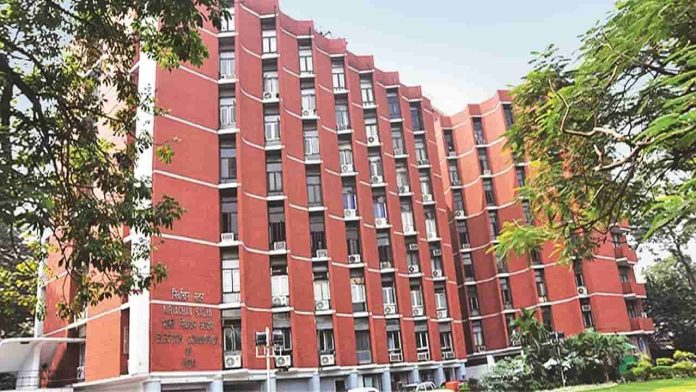By Sanjay Raman Sinha
The appointment process of Chief Election Commissioners (CECs) and Election Commissioners (ECs) is currently under challenge in the Supreme Court and the Court has asked tough questions to the government.
In this context, a draft bill on appointment reforms in the poll body gains significance. John Brittas, CPI (M) member from Kerala, has introduced a private member’s bill in the ongoing winter session of Parliament aimed at bringing about changes in the appointment process of CECs and ECs.
Speaking to India Legal, Brittas said: “Now we can see an Election Commissioner being appointed violating all processes of appointment of civil servants to institutions. Also, now, in a constitutional body like the EC, appointments are being done on the whims and fancies of the executive. So there is nothing which could be held as an example for an EC. All that is being done now has to be upended and a new process of appointment has to be brought in.”
The Constitution (Amendment) Bill, 2022, proposes amendment of the Constitution to bring about transparency and fairness in the appointment process and installation of proper checks and balances. The Bill proposes a collegium consisting of the chief justice of India as chairperson, Speaker of the Lok Sabha as co-chairperson and the Leader of the largest Opposition Party in the Lok Sabha. The Bill seeks to ensure that the senior-most Election Commissioner shall be appointed as CEC upon demitting office by the incumbent.
Speaking to India Legal, TS Krishnamurthi, a former CEC, said: “As the senior-most officer is selected as CEC, he should get a tenure of a minimum two or three years. The current trend is that they serve for eight to nine months and then retire. At least a year’s tenure for the CEC should be mandatory. It should be planned accordingly. The issue of tenure is very clear in the Constitution. It should be six years or 65 years at the time of retirement, whichever is earlier. So if the CEC is appointed at 59 years, he will get full six years. The current practice is to appoint the CEC after 60 years. This is creating shorter tenures.’’
Brittas had submitted the Bill to the Rajya Sabha Secretariat about two months ago before the Supreme Court’s hearing in the Election Commissioners’ case began in November. Brittas added: “Interestingly, the observations of the Supreme Court and even the suggestions which came from it have something to do with the Bill, because it’s in sync. My understanding is that the whole process of appointment of the EC nowadays is purely on the executive’s consideration, and they have appointed their ‘yes’ men. This is the state of affairs of a constitutional body like the EC. This Bill will add impetus to the suggestions that are there, revolving around the idea of the EC and independent authority.”
The Bill also seeks to extend protection to service available to the CEC in case of removability from office, as well as ECs in order to ensure independence. It also aims at strengthening the independence of the secretariat of the Election Commission by having separate, independent and permanent staff. Çurrently, civil servants who oversee administration work are posted to the EC.
The model envisaged by Brittas is that of the Lok Sabha and Rajya Sabha secretariat which have their own recruitment process and are independent. Service conditions are governed by laws made by Parliament. The makers of the Constitution provided for separate and independent secretariats of the two Houses. They play an important role in strengthening parliamentary democracy. They provide objective and non-partisan secretarial assistance to the presiding officers. Such a secretariat is also the proposed in the draft Bill.
Protecting the EC office from political influence is a prime concern of all political parties, more so the Opposition. So will the treasury benches endorse the Bill? Brittas is optimistic. “I don’t see any difficulty in getting support because all well-meaning political parties would like to have the EC as an independent authority. It’s not a partisan Bill. It is to make the institution independent. Even the ruling party should back it because that was its stand when it was in the Opposition. I feel that there should be political consensus to make institutions independent and insulated from the interventions of other pillars of democracy. The EC is one such watchdog which should be there and independently functioning to protect the basics of our parliamentary democracy. So anybody who’s interested in protecting it and the democratic positions in this country has to come forward and support the Bill.”
Currently, the appointment process of the CEC and ECs is under scrutiny at the apex court. With a series of elections round the corner, the passage of the Bill and statutory safeguards can make the turbulent election phase smoother.


